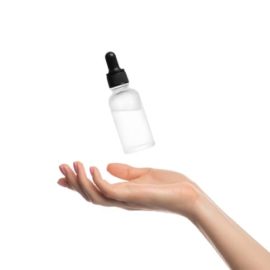The eco-conscious BPC market has expanded in recent years; brands are innovating and a wider range of products is encouraging consumers to make the sustainable switch. Last year, just over half of adults in the UK bought a green BPC product – and although this means that market penetration is relatively high, it also means that there’s room for growth (Mintel, 2020). Cosmetics packaging suppliers should bear this in mind: brands will be reacting to the demand imminently.
Sure enough, they are responding rapidly: NPD carrying ethical and environmental claims accounted for 46% of all product launches last year (Mintel, 2020). As pressure increases on brands that aren’t meeting consumer expectations on environmental responsibility, cosmetics packaging suppliers should innovate to facilitate this shift.
Content
New trends in sustainable packaging
Sustainability isn’t only a consumer demand; it’s becoming a legal requirement. In 2017, many jurisdictions banned microbeads, which then extended to microplastics. This triggered a broader industry concern with sustainability, particularly the use of plastics. Therefore, brands began thinking about how they could reduce their plastic use throughout the supply chain, with packaging being of primary concern.
The result has been a shift towards biodegradable packaging, including sustainably sourced cards and papers or bioplastics. Equally, going completely packaging-free is a key trend, with brands offering solid body and hair care products. Although still niche, solid formats are gaining popularity: in 2019 solid formats accounted for 0.8% of ethical and environmental skincare NPD, up from 0.3% in 2018 (Mintel, 2020). Refills are also an appealing approach: consumers are already used to bringing their own bags to stores, so why not extend this to a ‘bring your own jar’ format for beauty retail?
It’ll take creativity but it’s an opportunity
For plastic to be labeled as biodegradable in the EU, it must meet strict criteria. This can be challenging, requiring lots of research and testing. For example, just one rule is that at least 90% of the original mass should be decomposed into particles that are able to pass through a 2×2 mm sieve. However, cosmetics packaging suppliers shouldn’t shy away from this challenge.
Meeting the consumer demand for eco-packaging is a key opportunity as the market grows. Last year, 38% of British consumers increased the number of eco-friendly products they bought (Mintel, 2020). With this upward trend set to continue, cosmetics packaging suppliers should continue researching solutions. According to Mintel’s 2030 Packaging Trend Report, it’ll be package manufacturers that develop and commercialize environmentally responsible packaging based on scientific research who’ll get ahead.
Provital inspires cosmetics packaging suppliers
Inspiring is part of taking care. Provital cares by anticipating trends, developing formulations, and inspiring the sector to create products that care for the planet. Provital participates in several schemes to ensure every aspect of the supply chain is sustainable, including the Nagoya Protocol and COSMOS organic certification. Provital wants their clients and collaborators to be inspired by our innovation with science and nature, so every aspect of product development is sustainable. By developing actives that lend themselves perfectly to solid, waterless, or other eco formats, Provital helps beauty brands and cosmetics packaging suppliers care too.
No comments yet
There are no comments on this post yet.





Leave a comment